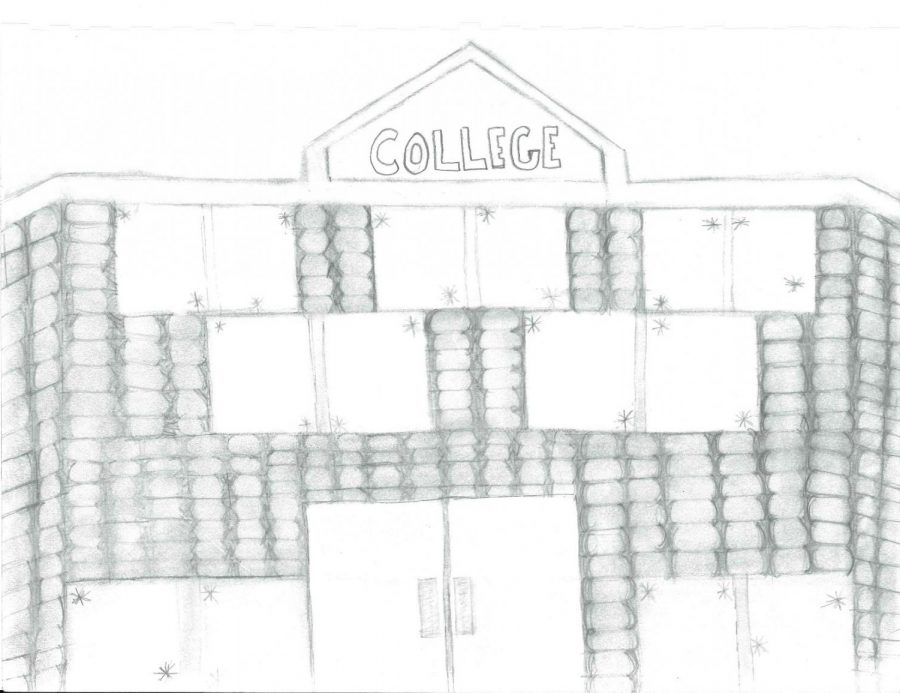College Application Tips
February 24, 2021
The college application process can be a stressful time, but through preparation from the beginning of high school up until the fall of your senior year can help prepare you for what is to come. As two seniors who recently applied and were accepted into a variety of universities, here are our top tips for a successful college application season. The best tip that applies through each grade level is if you can do something early you should, and make sure you always meet deadlines.
Freshman year is a great time to begin your journey for college. You have a chance to start fresh and starting off your high school career right is very important. Your first priority should be your grades make sure you are on top of your grades turning in assignments on time and seeking help when needed. You should also join extracurricular activities such as clubs, sports, and volunteering. We would recommend exploring and reading about majors that may interest you. If you have any relatives who attend college or who have recently graduated you can ask them questions about their college experience in order to gain more insight. Visiting college websites will allow you to gain an insight on these universities, you will be able to see majors/minors that they offer, special programs, activities, and many are offering virtual tours so you can explore the campus.
Once you have reached sophomore year you have one year of high school under your belt, and it is important that you keep up good habits. You should continue to stay on top of your school work, keep studying, and reach out to your teachers when you are struggling. You should also make sure you are a dedicated member to your clubs, jobs, volunteering, and sports. Remember that in the long run these teachers, mentors, and counselors will be the ones who will write you recommendation letters. If you would like to visit some schools that you have taken some interest in, you will get a feel for the campus, atmosphere, and possibly be able to sit in on a class. Towards the end of your sophomore year you should begin thinking about whether you would like to take the SAT, ACT, or both. The SAT has four sections: reading, writing, math, and an essay (optional), while the ACT has reading, english, math, science, and an optional essay as well. The biggest recommendation would be to buy some prep books, sign up for a prep class (some do cost money, while others may be free) and start studying towards the end of 10th grade.
Your junior year is the most academically important year, so do your best to stay on top of things. This includes keeping your grades up, and even taking AP classes to help boost your GPA. Keep in mind that AP courses help prepare you for college level work, and will give you better organization and time management skills. This year is also the year you should take your SAT/ACT. In order to do well, you have to study and by starting at the end of sophomore year, you already have some familiarity with the test. It is highly recommended that you take the test more than once because if needed, you can superscore your test scores. This means that you can add up the highest english score and the highest math score that you received. Alongside your academics, continue to build on your extracurricular activities. This includes your volunteer work, participation in clubs, and leadership roles in school or your community. These achievements will help build your resume, so that colleges can see your productivity and impact outside of school. Towards the end of 11th grade, look into your college application prompts and try to have an idea as to what you would like to write about. This may seem like a lot, but it is so important to work hard your junior year, to help your senior year be as successful as it can possibly be.
Applying to college starts even before your senior year. As you may have noticed, it is heavily emphasized that you start the process early. The summer before your senior year should give you enough time to start your college application, specifically your essay. That way, you can have a major piece of your application completed and move onto other things, like building your resume, getting teacher recommendations, and sending your transcripts. While you are doing this, make sure that you keep track of your deadlines. You can keep track of them by setting it on a calendar. A very important deadline to look out for is the one for FAFSA and HESSA. You want to complete these forms as soon as possible, so that you can have some sort of federal aid money for college. It will be very helpful to create a checklist of what you need, so that it is not too overwhelming. As you have probably read multiple times, it is crucial that you start the process early, if you want the best outcome. Take things step by step, and before you know it, you applied to college!
Friendly reminder, what you may like at 14 will not be what you like at 18. It is okay to change your mind and change your major. You do not have to go to an ivy league school; community college and trade schools are valid alternatives to a four year institution. When you feel stressed and overwhelmed take a deep breath, and remember everything will all work out.


